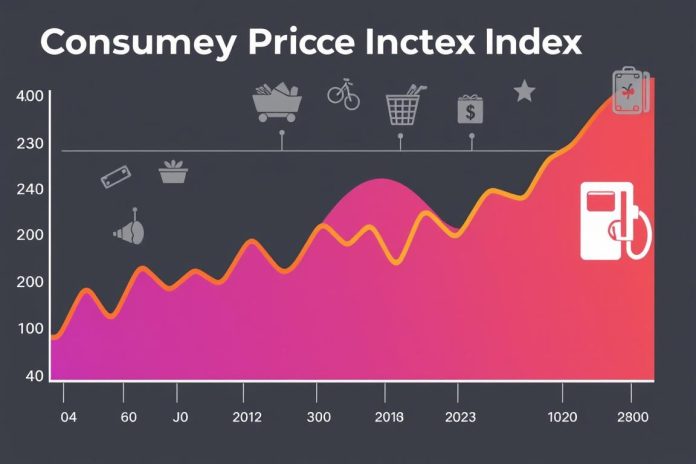When government support fades, we face the true challenge of financial strength. Imagine balancing on a tightrope of money management without stimulus help. Economic uncertainty and inflation test your stability. This situation is real for many as countries choose different paths after global crises. For example, Japan helped businesses with low-interest loans1. Mexico’s tourism struggled with tough rules1. African countries hoped a trade deal would boost their industries1. Your path to financial security and independence starts by building resilience and learning to thrive without government aid.
Getting financially stable requires understanding that your strategy must fit your own economic situation. You need a strong commitment to create your own safety net. This might mean saving for emergencies2, cutting back on spending2, finding new ways to make money2, or strengthening your investments and managing risks well2.
Key Takeaways
- Leverage Japan’s example of lower interest loans to seek out competitive financing options1.
- Adopt the resilience of Mexico’s tourism industry by adjusting to new financial realities1.
- Consider the ambitions of African nations and Norway’s fund in fostering sustainable growth1.
- Prioritize building an emergency fund for financial peace of mind in uncertain times2.
- Live within your means to avoid debt traps exacerbated by inflationary pressures2.
- Cultivate multiple income sources for robust financial security2.
- Embrace prudent, diversified investments to withstand market fluctuations2.
- Maintain a high credit score for financial flexibility during credit market tightening2.
The next sections will give you practical tips, guiding you to control your financial future without stimulus aid. Being independent without government help lets you lead your financial journey. You’ll navigate through challenges with wisdom and effective strategies.
Assessing Your Financial Health Amidst Inflation
Now more than ever, understanding inflation’s effect on your finances is key. The Consumer Price Index (CPI) has shown significant swings, particularly with increases lately. For instance, from a 4.7% inflation rate in 2021, it jumped to 9.1% in June 20223. These changes impact not just the economy but also your buying power and budget.
With the inflation rate now at 2.4% as of October 20243, having an emergency fund has become critical. Despite a stabilization, living costs in cities like New York are still much higher. In October 2023, expenses were 128% over the national average3. This highlights the importance of good financial planning and saving for tough times.
Your budgeting methods need to adjust to inflation. Zero-based budgeting, where every dollar has a purpose, is very useful. As inflation changes spending, businesses also change their pricing to keep up4. This influences the prices of goods and services, affecting your budget.
Income growth has shown slight increases. Median weekly earnings for full-time workers went up by 4.2% in late 2024 compared to the year before3. This information is crucial for making informed financial choices, such as where to save or invest to beat inflation.
To manage your finances well during these times, here are some tips:
- Always update your budget to match current inflation trends and your financial goals.
- Improve your emergency fund for a safety net during sudden economic changes or personal crises.
- Keep up with Consumer Price Index updates and other economic news to stay ahead of financial challenges.
In summary, proactive budgeting, a solid emergency fund, and staying informed can help overcome inflation’s negative effects on your finances.
Surviving without Government Aid: A Roadmap to Self-Sufficiency
To live well without government aid, strengthen your finances and find more ways to make money. We’ll look at useful tips to get ready for emergencies, manage your money better, and have more than one way to earn.
Creating and Sustaining an Emergency Fund
Start by saving for a rainy day fund. Experts say it should have enough to cover 3 to 6 months of bills. This helps you stay safe if unexpected things happen. Put your savings in a high-yield account or a money market account. This keeps your money safe, easy to get to, and growing with interest.

Smart Budgeting and Expense Tracking
With prices going up, it’s important to keep a close eye on your spending. Make a detailed budget to guide you every month. Know where every dollar goes. Use budget apps and cash-back credit cards. They help you track spending and save money, all without needing government help.
Diversification of Income Streams
In today’s world, having more ways to make money is key to less stress over finances. This could mean asking for a pay raise or starting a side business. For example, tutoring or renting out something you own can add to your main income. This way, you’re not just relying on one paycheck, which makes your financial life stronger and more secure.
| Strategy | Benefits | Tools |
|---|---|---|
| Emergency Fund | Financial safety net during emergencies | High-yield savings, Money market accounts |
| Smart Budgeting | Enhanced visibility and control over personal finances | Budget apps, Cash-back credit cards |
| Income Diversification | Increased financial security and resilience | Side hustles, Negotiations for salary hikes |
With these steps, you’re not just getting by without government help. You’re aiming higher, towards financial freedom and stability567.
Building Resilience through Investment Strategies
Building a strong financial foundation is about having good investment strategies. These protect you from market ups and downs. It’s key to mix your investments – like stocks, bonds, and real estate. This way, you spread risk and grow your money over time.
Adding assets like gold IRA helps fight inflation. These investments are usually safe when prices rise. Investing in real estate is also smart. It often rises in value and can earn you rental income.

Modern tools like mutual funds and ETFs make managing your money easier. They adjust your investments as markets change. This keeps your portfolio balanced, matching your goals and how much risk you’re okay with.
Being flexible is at the heart of staying strong financially. Investment in resilience is important for your money and for handling unexpected economic shifts. Diversifying helps you avoid big losses from single events8.
To protect and grow your money, you need to stay up to date. Follow global economic news and policy updates. This knowledge helps you make smart choices for now and the future.
Creating a varied investment portfolio with stocks, bonds, and gold IRA sets you up for a secure future. This way, you’re better prepared for economic ups and downs. It leads to a financial situation that’s not just solid but also ready to grow with you.
Conclusion
In times of financial hardship, it’s crucial to adopt ways for financial resilience. This article has shared tips on being ready for emergencies, wise budgeting, earning more, and smart investing. These tips help you live sustainably and be ready for tough times without depending on others.
Getting to financial freedom is easier with the strategies we’ve talked about. They stress the need to rely on yourself for money matters9. We’ve covered the importance of an emergency fund, watching your spending, and having more than one source of income. These steps are key to stay financially stable9. We’ve explained why it’s critical to build your financial strength. It’s not just a backup plan but a way to protect your finances for the future9.
It’s good to remember that help from the government, like stimulus checks, isn’t always certain. Working on your savings and using help from places like the Treasury Department can make you more financially secure10. Take examples of people who got stimulus checks and tax credits. They should use this money to improve their finances in the long run, not see it as a quick fix10. Ending with these stories shows how government help can aid your financial goals. Yet, your own decisions and smart money management are the real keys to success9.
FAQ
How can I maintain financial security without relying on government aid?
What strategies can help me manage the effects of inflation on my finances?
What is the purpose of an emergency fund, and how much should it contain?
How can I improve my budgeting and expense tracking?
What are some practical ways to diversify my income streams?
Can investment strategies really help build resilience against inflation?
How do sustainable living and preparing to live off the grid contribute to financial resilience?
Source Links
- Creating economic recovery and growth after COVID-19 – https://www.pwc.com/gx/en/industries/government-public-services/six-challenges/economic-recovery-after-covid-19.html
- 7 Ways to Recession-Proof Your Life – https://www.investopedia.com/articles/pf/08/recession-proof-your-life.asp
- How Inflation Affects Your Cost of Living – https://www.investopedia.com/articles/personal-finance/081514/how-inflation-affects-your-cost-living.asp
- 5 Business Strategies to Survive High Inflation – https://www.growthforce.com/blog/5-business-strategies-for-inflation
- An Opportunity Roadmap: Building a Better Social Safety Net – Pelican Policy – https://pelicanpolicy.org/opportunity-policy/an-opportunity-roadmap-building-a-better-social-safety-net/
- PDF – https://warrenvillage.org/wp-content/uploads/2018/07/Warren-Village-White-Paper-2016.pdf
- PDF – https://epar.evans.uw.edu/wp-content/uploads/2024/08/epar_uw_349_aid_and_self-sufficiency_11.30.17_final.pdf
- The Benefits of Investing in Resilience and Mitigation – https://ibhs.org/public-policy/the-benefits-of-investing-in-resilience-and-mitigation/
- Essay Conclusions | UMGC – https://www.umgc.edu/current-students/learning-resources/writing-center/writing-resources/writing/essay-conclusions
- American Rescue Plan | The White House – https://www.whitehouse.gov/american-rescue-plan/

